Meredith Arthur's Blog, page 9
February 24, 2020
How I Learned to Coach Myself and Calm My Mind
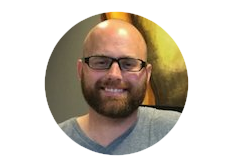
By Andrew Bennett
For most of my adult life, I’ve been looking for a magic potion. Well, maybe not magic, but something close to it. After many years of what has felt like unrelenting, insurmountable anxiety, worry, and fear that all seemed to pervade virtually every aspect of my life from baseball to work to relationships, I’ve finally begun wrapping my brain around a few simple ideas that are helping me – a lot. I’ve never written about this, and I can count on one hand the number of people I’ve talked to – like, really talked to – about this. I generally don’t write about myself because I think most people don’t care, but my improvement the last six months has felt so profound that I thought it was worth sharing, in hopes of someone else finding even a small measure of inspiration or even consolation in some aspect of my journey.
I got very lucky last October. I stumbled upon an outstanding therapist – my first of any kind, other than a sports psychologist I worked with at the tail end of what I like to refer to as my “brief and unspectacular” professional baseball career. (That sports psychologist, by the way, was actually very, very good, and I’d highly recommend him to any ballplayer; unfortunately, I found him long after the last point at which my career and love for playing the game were salvageable. Look up “Steve Blass Disease” for further details.)

From my coaching days.
Through a combination of loving-but-firm encouragement from my amazing girlfriend and, well, a single Google search, I found someone who has managed to patiently, brilliantly help me begin to unravel the tangled mess of negativity that used to feel like it was consuming my brain from the inside out.
How I described my problem in the past.I should back up a bit and describe how I used to think about my “problem.” I approached it as I imagine many former athletes might, through the lens of incremental, measurable progress: If my anxiety right now is a ten, and I want it to be zero in five years, then I need to find a process – an exercise, a drill, instruction from the proper coach – to remove one unit of anxiety every six months for the next five years, and then I’ll be happy. I don’t beat myself up (anymore) about how misguided that strategy was, because quite frankly, it worked really well for me – and led me to success – in many other, more achievement-focused facets of my life.
But here’s why that approach was, for me, doomed from the start: I clung to a belief, instilled in me by pretty much everything I read and everyone I talked to, that by thinking negative thoughts, you make them come to life. Now, to be fair, this actually did happen to me in baseball. I’d step up to the plate petrified of striking out, or look to first base fearful of making a bad throw, and those very same (or worse) negative results I visualized would time and again manifest themselves right before my eyes and before the eyes of thousands of unsympathetic fans.
I clung to avoiding negative thoughts. I believed acknowledging them made them come true. To be fair, this actually did happen in baseball.So when – over the course of many years – those negative thoughts, left largely unacknowledged and unattended to, terrifyingly morphed into Don’t suddenly swerve into oncoming traffic, Don’t pour your hot coffee on that little kid’s head, Don’t shove that random person down the stairs, or Don’t spastically put your fist through that pane of glass, the growth in the amount of control my incessant and irrational worrying exerted over my day-to-day thinking went from linear (annoying and concerning) to exponential (downright frightening). My fear of my own thoughts was surpassed only by my frustration and helplessness at not being able to stop thinking them. As I’m sure other anxiety sufferers know, life is typically not much fun when you wake up every day scared of your own mind.
Then, two breakthroughs.It started when my therapist, after a few months of getting to know me and beginning to understand what goes on in my head, asked me to pick a friend (I chose a very close one, someone I’ve known since childhood and love very much) and to pretend that that friend was facing my issues himself. My therapist asked me to talk – at length, it turned out – about how, very specifically, I’d show the immense compassion I’d surely feel for my friend, and about what that would feel like. I was admittedly skeptical, because it felt a little contrived, like many of the fruitless thought exercises I’d tried over the years. But when I got to a place where I could really feel – not just articulate – that hypothetical compassion, something clicked. I got it. That level of compassion, directed at myself, was my new goal. And because I would get to count up, from zero to whatever, rather than down, from ten to zero, there would no longer be the proverbial clock (an anxiety inducer itself) ticking.
Why was this so powerful for me? Because suddenly, amazingly, the intense pressure of my ten-to-zero anxiety-reduction countdown was lifted. That monster could stay at ten or double to twenty or diminish entirely without me really caring, because I had a new strategy (focused on a new, completely orthogonal variable): to take a small step each day toward showing myself the same compassion I’d show that dear friend, to grow that steadily from zero to whatever. I’m just getting started on it, but I can’t tell you how good it feels to finally reframe something that seemed destined to remain so intractable.
I can’t tell you how good it feels to finally reframe something that seemed destined to remain so intractable.The second breakthrough was subtler and much more recent, and it has to do with gratitude. I’ve never really had trouble finding a place of gratitude for the challenges life has thrown at me, but it’s always been the thankful-for-hard-times-helping-me-grow-as-a-person kind of gratitude – which I don’t mean to diminish in any way. (That’s not an easy attitude to maintain, and I still struggle with it from time to time.) Rather, what my therapist is beginning to get me to see – and to be grateful for – is that a little bit of anxiety, in healthy doses and at appropriate times, can be a good thing, and can simply make you better at doing things, better at life, better at decision-making. My frustration and agony had become so intense, so blinding, that I couldn’t fathom any measure of real victory other than complete and total extinguishment of all traces of fear and worry. Not only was that absurdly unattainable, it was foolhardy and impractical. A little bit of that stuff is a good thing, and I’m becoming increasingly grateful that I’ll never have a shortage of fuel to keep me focused on doing the right thing for myself and for the people I care about.
It's worth a shot.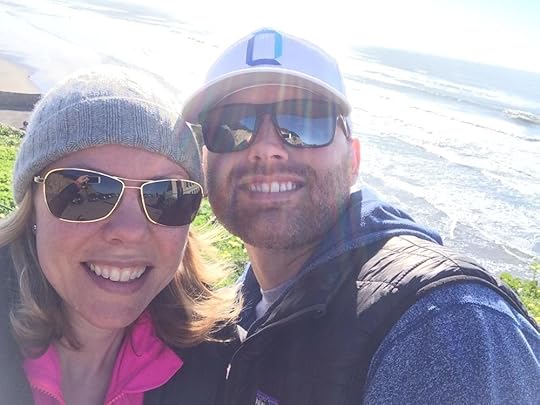
I didn't think anything could change. But it can. That's why I wanted to write this and share these thoughts with you.
These are just two simple, non-earth-shattering ideas; I know I’ll have other breakthroughs in the years to come that may be more powerful, or that may contradict or even entirely rewrite pieces of this. But here’s what I’ve learned: When you’ve spent years watching your brain try to claw itself out of thickening quicksand, a few simple concepts articulated by someone other than yourself can be truly transformative. I didn’t believe that, but I’m lucky enough to have someone in my life who wouldn’t give up until she convinced me to give it a shot. My hope is that these words find at least one other person who thinks talking to someone is a waste of time. I won’t pretend to be an expert or promise you results I shouldn’t, but I can promise you that it’s worth a shot.
Originally published Feb 06 2017. Updated Sept 24, 2019.
February 20, 2020
How I Adjusted My Job In Mental Health to Better Help People

Seeking out the best way to help others navigate a broken world.

By Jamie Cannon, Author/Blogger at Anxiety by Still
I am probably what you would consider an atypical therapist. I don’t focus on the theory that would work best with the problem at hand. I don’t play calming music and decorate my office with Zen gardens. Most of the time, I consider “good” therapy to be a process of problem-solving, with a strong focus on how we are all pretty much messed up.
This is not what they teach you in school.In reality, great therapy is empathy in motion, with no hidden agenda. For decades, I have helped hundreds of children, families, and parents become the best version of themselves. I have witnessed their arguments, their broken pieces, and listened to family secrets. I have seen people with unthinkable trauma and abuse turn their lives around and find meaning again. I have watched people lose hope and give up. I have been entrusted with scars, rage, and shame.

Real life is dirty.
One of the best professors I had in college explained to me that a career in clinical therapy is akin to having other peoples’ dirty water splash you all day long. You don’t realize until you get home that you’re covered in the filth of broken hearts, fear, and humiliating secrets. By the time you cut through the layers of others’ grease, it becomes too exhausting to start scrubbing your own. This is why so many therapists give up, quit, and go into therapy themselves.
Have you ever wondered why most therapists don’t have anyone to refer their family and friends to when problems arise? I will let you in on a trade secret – it’s because we know that even your therapists are damaged.
When you spend your life helping other people mend their broken pieces, you can become extremely fragile. Their fears can become your fears. Their wounds bleed onto you. Many clinicians leave the field after realizing they are becoming slowly incapacitated by pouring their energy into others. The mental health field, as a whole, has tried to stress the importance of self-care for therapists. Unfortunately, it has done so in a very evidenced-based, research-oriented manner. While I depend heavily on research and best practice, sometimes it takes away the human side of what we do.
Therapists and other helping professionals are highly trained to march out the latest designer intervention, dress it up in fancy Sunday clothes, and earn a certificate of achievement in it immediately. We do a great job of continuing to educate ourselves while sacrificing the base of our profession. In the name of science, many therapists tend to lose the personal connection that first drew them to the field. This is often the first step to disillusionment, and disillusionment is the first step to a therapist’s demise. As helping professionals, it is vital to our well being that we recognize our human frailty.
Helping professionals are people, too.Therapists, just like doctors or any other service individuals, are first and foremost humans. They make mistakes. They have problems of their own. Life goes on. Any individual who goes into a field that serves others is placing their own well being at enormous risk.
This is especially significant in the mental health field. Doctors can easily share stories all day long about their own surgeries or heart problems. Therapists, on the other hand, rarely spill their shameful secrets of depression, anger, and bad decisions. Therapists are actually taught to avoid self-disclosure in session – which is a positive way to maintain boundaries with clients. It becomes a problem when this practice spills into the rest of their life. A therapist who becomes unaware (or in denial) of their own struggles has taken the first step toward a cliff. As a society, we often support the false belief that therapists should be perfect. As humans, we have to recognize that we are all hurting in some way.

This is a broken world.
Throughout the threads of life that I have been exposed to as a therapist, one thing has been glaringly clear: we live in a broken world. Life can be very hard, and we can be very fragile. As a therapist, I listen without judgment. As a person, I beat myself up daily and second guess every decision I have ever made. As a therapist, I know what research shows the best way is to handle every “disorder.” As a person, I know that in the moment, I do the absolute best I can with what is available to me. As a therapist, I am staunchly neutral and unconditionally positive to help clients reach their goals, not mine. As a person, my heart hurts to know so many of us are fragmented and cracked. As a therapist, I am called to support forward movement. As a person, I am called to forgive.
What my awakening looks like.I have somehow emerged from my therapist cocoon of self-driven productivity into an awakening. I have been given the opportunity to bridge the clinical therapy world with tangible methods of helping others through my writing. My experience as a therapist has taught me to see the fragility around me and most importantly, to laugh at myself continuously. My heart drives me to give others hope, through sharing knowledge and experience in a way that makes our very serious flaws seem manageable.
The authentic way to help others is to be yourself. Share your labors, celebrate your delights. Learn to plant the shame, hurt, and horrible mistakes so they can blossom into victory and resilience. By focusing on our communal shattered pieces, instead of pointing fingers, we begin to find healing and peace. The reality is that everyone struggles and everyone triumphs. My mission is to use my experience, professional and personal, to be a lighthouse of hope to those who are blinded by their own darkness.
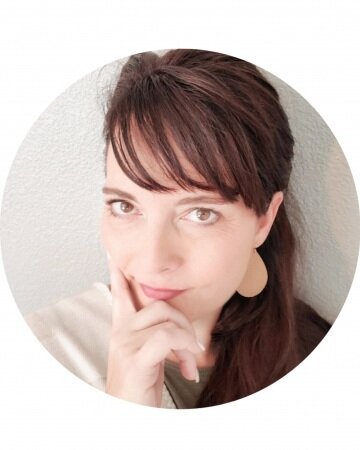
Jamie Cannon lives in Cheyenne, Wyoming. She is a licensed therapist and owner/writer at Anxiety Be Still.
February 15, 2020
What Mania Is Really Like

Author Hayley Watkins
Well, I’ll tell you one thing… it’s not always a euphoric feeling of happiness with enough energy to feel like you could conquer the world. I hear people say they wish they were manic. They wish they could feel that happiness. They wish they could feel that high. But, in reality, mania means way more than the feeling of an abundance of “happiness”.
Ever since I was diagnosed as bipolar, I’ve struggled to come to terms with what mania really means for me, and determining the times when I am depressed, when I am manic, and when I am in a healthy state of “in-between”. Well, what am I like when I’m really manic? Let’s see…
I have more energy than usual.
I don’t require as much sleep.
I am more loving and friendly towards others.
I am creative.
I come up with a million new ideas, that I can write about all night long.
My sex drive sky rockets.
While these can seem like harmless, maybe even good qualities to have, let me also tell you about the dark side that comes along with being manic.
I talk too fast, to the point where people think I’m on something.
I make rash decisions, that seem logical to me at the time, but, in reality, are far from logical.
My thinking is distorted, and my thoughts are irrational.
I have zero impulse control. I think of something and immediately act upon it without thinking of the consequences.
I feel like I have so much love to give but am incapable of giving anything “real” at all.
I want to stir up chaos for my own amusement. I am excruciatingly bored.
You see… mania is when you spend all the money in your bank account because you got the sudden urge to go get tattooed, only to come up short for rent, fighting with your significant other about how it’s going to get paid now.
Mania is when you have more energy than you know what to do with, so you try to fill that energy with getting drunk or high, only to not wake up in the morning, causing you to miss work and jeopardize your job.
Mania is not being able to control your sex drive or your impulses, so you cheat on the one person who loves and cares for you all because you’re just craving something to make you feel alive for 5 seconds, only to leave you crying on your bathroom floor after realizing what you’ve done.
Mania is having affairs with married men, because the “thrill” of it all ignites a fire inside of you, not caring or even comprehending that you are wreaking havoc in an entire family.
Mania is when you try drugs, because “one time won’t hurt”, causing you to lose custody of your kids, turning their lives completely upside down.
I could go on and on about the things I’ve done while manic, but the truth is, no matter how much of a “high” I was on, no matter how “fun” or “exciting” those things seemed to be in that moment, each one of them left me in a pit of heart-wrenching despair. Each one of those things has had serious consequences that left me feeling hopeless, hateful (of myself) and confused.
Mania is not fun. It is not something to take lightly. Mania is something that can ruin your life, and the lives of the people around you. It is not a game to be played with. It is not some fun euphoric happiness that ends in a slight downfall. It is real, it is raw, it doesn’t discriminate, and it leaves you with a lot of messes to clean up.
Mania is this monster inside of me fighting for first place, but the winner never comes out with anything but heartache. It is this inner feeling of absolute chaos that makes you want to build and destroy something all at the same time. It is not poetic. It is not artistic. It is not something that should be romanticized.
Haley Watkins, from Houston TX, is a single mother of 2 who hopes to share real, raw content about the struggles of mental illness in hopes to letting people know they're not alone, as well as try to end the stigma against mental illness. She originally published this piece on Invisible Illness, a Medium publication .
Have you ever experienced mania? Was it similar to what Hayley describes here? Share you experience in the comments.November 19, 2019
What I Learned From the Early Days of My Father's Dementia
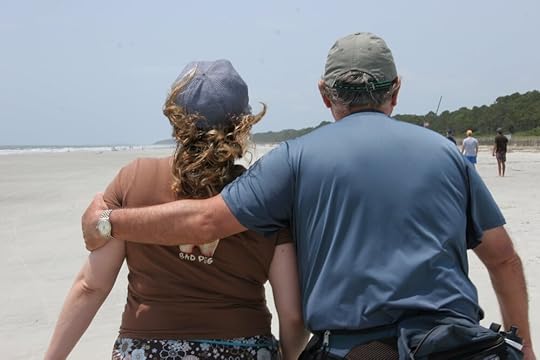
Me and my Dad in Hilton Head, 2008
Though the words feel foreign to me now, I remember writing this in March of 2008:
Hello,
My father is 66 years old and has had progressive memory loss/cognitive impairment over the last 5 years. He has seen a private neurologist, but as his condition is worsening, we are looking for a multidisciplinary memory disorders clinic. We would like the following services: + a neurologic/neuropsychiatric testing to establish a diagnosis and provide treatment recs. + social work to provide resources for our family for support and care planning geropsychology for counseling for my father/mother.
I searched your neurology website and found many comprehensive centers, but did not see one for dementia/memory disorders. Does the Cleveland Clinic provide these services in a coordinated environment?
Please contact me via email or phone at 415–846-xxxx if you have any questions. Thank you in advance for your help.
This isn’t about my father, though. Not exactly. And it’s not about his death from Alzheimer’s in November of 2013, five years after this email was written.
This is about what I learned in the early stages of his disease.
Five Mistakes I Made In the Early Stages of Alzheimer's DiseaseThis is for those of you who are seeing the signs of memory loss or dementia in your parents. Why? Because it’s starting to happen. I may have been the first, but I won’t be the last. In the past two weeks alone, I’ve spoken with three different friends in their late 30s/early 40s who have alluded to a parent or their in-laws’ confusing behavior, memory loss, and possible dementia.
I’m using examples taken from my own experience and my mistakes. I hope my stumbling will help you find your own path a little more easily.
1. I said, “He’s just lazy.”Before he was diagnosed with Alzheimer’s, it seemed like my father just didn’t want to do very much. I got up the courage to talk to him about it. I remember it was President’s Day of 2004. I called and asked him what was wrong. I asked him to “come back.”
TakeawayIf your parent seems like they are working too much, or playing too much, or drinking too much all of the sudden in their late 60s…it’s not necessarily that they are depressed or choosing not to deal with things. It could be a sign of memory loss. Maybe they’re sticking with familiar patterns but unable to modulate the way they used to. (My brother: “To me, Dad’s early stage dementia behavior was only an exaggerated version of his regular self.”)
I spent years thinking my Dad was lazy. I regret that now.

Note: This behavior is well described in the incredible novel We Are Not Ourselves. It’s the only book with an Alzheimer’s plot I’ve ever read. On that topic, I’d recommend limiting your media intake around books and movies with dementia plots. It can’t help, as much as we want it to. In a way it can hurt. They are dramatizations, and often manipulative. I’d suggest sticking to straighter sources of information you trust until you feel pretty comfortable with the topic. I’m not there yet, for example. I may never be.
2. We thought my Dad would enjoy socializing.My brother, who lived close to my parents during this early stage, says, “The most telling sign of early stage dementia, for me, was Dad’s inability to mingle in groups. My takeaway is recognizing that no matter how hard it is on a child to cope with a parent with dementia, the parent with dementia is coping, too.”
TakeawayOur big mistake was attempting to create social situations for my Dad, or include him in groups the way we once had. I wish we had given ourselves—and my Dad—a pass on all mingling.
3. I fixated on diagnosis.I spent years trying to get my Dad neuropsychological testing, having figured out testing was the place to start by talking with a trusted friend who, luckily enough, was a doctor. Here's a note I sent her from the middle of my impatience in March of 2007:
It’s so fucking frustrating to me that everything is on this constant excuse, “We can’t do that because we are going to SC” or “We only have two months in Ohio so we can’t do it” — just a bunch of excuses as far as I’m concerned, but I think that’s how [my parents] live the way they do.
And here is her brilliant and measured response:
TakeawaysI can understand the frustration with the nomadic parents. It’s hard to know whether people put things off b.c. it isn’t a priority or b.c. they don’t want to face up to them. In this case, I certainly don’t think it will matter to postpone the testing as it’s more likely to give a baseline assessment than change how things are managed right now.
If you feel frustrated and want answers, I feel you. Just know that your quest for a diagnosis may be for your own peace of mind more than for the good of your parent (or your supporting/caregiving parent, if you have one). It’s great to understand your parent’s mental baseline, but ultimately, did it matter that my father was diagnosed with mild cognitive impairment? I was so focused on taking “the right steps” that I couldn’t hang out with where we were as a family at the time. I just wanted action.
Everyone in the family, including you, is adjusting to this change at different speeds. You know this intellectually, but you’ll probably experience it viscerally in the next couple of years. You’re just starting this process of letting go of your parent (and I know that even reading that sentence might hurt, and I’m sorry to be saying it to you). Everyone reacts to the loss differently. Throw a wildcard like un/diagnosed dementia into the mix and then you have heartbreak mixed with a shared project management situation going on. There is no one right way to do heartbreak on top of project management. It differs greatly based on your resources — more money and time is better — and location.
4. I acted weird.When I would go home to see my Dad, I was tense. I didn’t know how to avoid asking him questions. I felt like I did everything wrong.
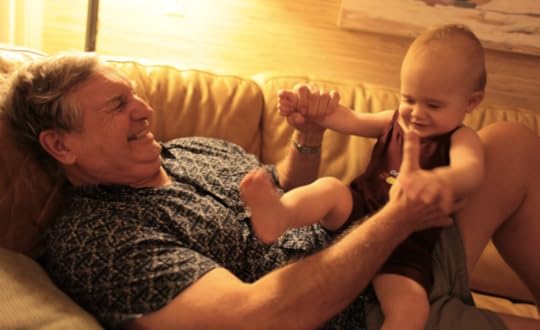
Takeaway
My daughter, who was 3 years old when she last saw my Dad, seemed to understand dementia a lot better than I did. If I were doing it over, I’d take lessons on hanging out from kids. She knew how to be in the moment with ease. When her grandpa would get confused, she’d just reintroduce herself. “I’m Alice.”
5. I went to a support group, and it was all wrong for me.I tried to figure out how to get the right information and support in the early stages. I went to a support group for people supporting people with Alz at a hospital in SF. It was all wrong. Just like that sentence.
TakeawayFind your people, and stick to them. I really wasn’t comforted by hearing how I was supposed to appreciate the new person that dementia gave me. Other people might be, though. If this post isn’t helping you close it right now and forget you ever read it. Ditto with how people respond to news of your parent’s sickness. Close, delete, and forget the responses from people that don’t fit who you are.
One last thing.

Plan and record a StoryCorps interview session with your parent, either in person in the StoryCorps mobile or with the app. The Memory Loss Initiative was particularly great for me. I did sessions with both of my parents.

May of 2008, two months after I wrote to the Cleveland Clinic.
I’m painfully aware of how little there is here. I’m giving you scraps really. But it’s more than I had when I set out on my journey.
I’m sorry that you are facing this.
I know how confusing this all is.
I hope that you don’t feel alone.
To make my heart swell a little, make a donation of any size to the Cure Alzheimer’s Fund in Rodney Arthur’s name .
Resources
New York: Special Touch In-Home Care



